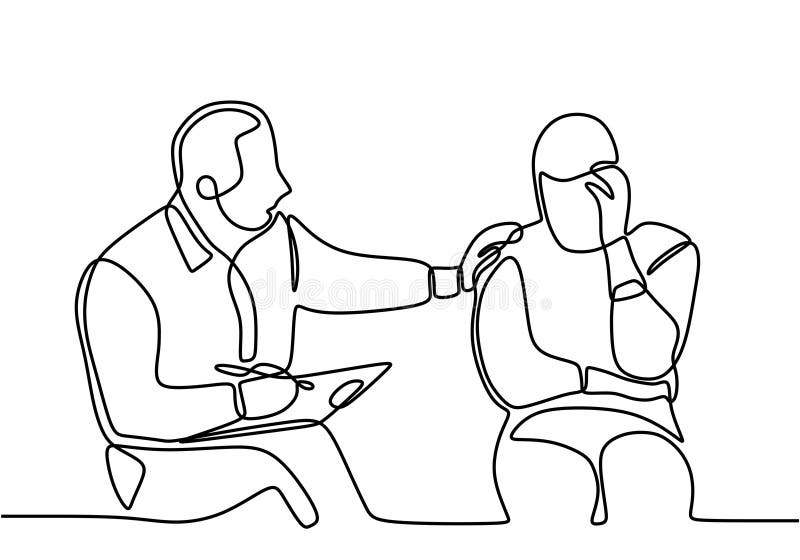The Importance of Looking For Aid from the Best Psychologist in Delhi for Stress Monitoring
The Importance of Looking For Aid from the Best Psychologist in Delhi for Stress Monitoring
Blog Article
Psych Therapy: A Comprehensive Guide to Outcomes and techniques

Cognitive-Behavioral Therapy
Cognitive-Behavioral Therapy (CBT) is a widely made use of psychotherapeutic approach that concentrates on determining and modifying dysfunctional reasoning and actions patterns. Created in the 1960s by Aaron T. Beck, CBT integrates behavioral and cognitive theories to attend to various mental wellness problems, including depression, anxiousness, and stress-related conditions.
CBT is identified by its organized, goal-oriented nature. Therapy typically involves a collaborative process between the therapist and client, where specific troubles are recognized, and sensible strategies are created to address them. Techniques such as cognitive restructuring, exposure treatment, and skill-building workouts are generally used. Cognitive restructuring includes difficult and changing negative idea patterns, while direct exposure treatment aims to decrease worry and anxiety through steady direct exposure to been afraid objects or scenarios.
Evidence-based research sustains the effectiveness of CBT for a wide variety of mental disorders - Best Psychologist in Delhi. Its focus on skill procurement and self-help methods encourages customers to continue development independently after treatment concludes. The flexibility and effectiveness of CBT have actually made it a cornerstone in modern psychotherapeutic practice
Psychodynamic Strategies
Rooted in the early concepts of Sigmund Freud, psychodynamic techniques concentrate on discovering the unconscious mind and its impact on behavior and emotions. These approaches aim to uncover concealed ideas and feelings that might be driving maladaptive habits and psychological distress. Central to this technique is the concept of inner dispute, frequently originating from unresolved previous experiences, especially those from childhood.
Therapists making use of psychodynamic techniques use several essential approaches, including complimentary organization, where patients are encouraged to talk openly to reveal unconscious material, and desire evaluation, which analyzes the unrealized content of desires. In addition, the expedition of transference and countertransference dynamics within the restorative connection is critical. These interactions can offer understandings right into the person's internal world and relational patterns.
Psychodynamic therapy is usually longer-term contrasted to various other modalities, offering a deep and extensive understanding of the person's subconscious. Study shows that it can be specifically reliable for intricate psychological wellness concerns, such as individuality problems and persistent anxiety. By promoting self-awareness and psychological insight, psychodynamic therapy seeks to bring unconscious product to awareness, making it possible for individuals to attain purposeful and long-term modification in their lives.
Humanistic Strategies
Building on the foundations laid by psychodynamic methods, humanistic techniques offer a distinct viewpoint concentrated on specific possible and self-actualization. Coming from the mid-20th century, these methods prioritize the integral benefits and development possibility of individuals, stressing a holistic sight of human experience. Key numbers such as Carl Rogers and Abraham Maslow have actually substantially influenced this therapeutic strategy, which includes techniques like client-centered therapy and Gestalt treatment.
Client-centered treatment, developed by Rogers, plays an essential role in humanistic strategies. The therapist's function is even more of a facilitator than an authority, motivating customers to harness their inner sources for recovery.
Gestalt therapy, one more vital humanistic method, stresses present minute awareness and the assimilation of mind and body. By focusing on the "present moment," clients obtain higher understanding right into their present feelings and habits. Strategies such as role-playing and directed visualization are usually utilized to assist customers gain a deeper understanding of themselves, eventually leading to boosted self-awareness and gratification.
Integrative Treatments
Integrative treatments stand for a synthesis of various restorative methods customized to meet the distinct requirements of each customer. This strategy recognizes the intricacy of human psychology and the multifaceted nature of mental health and wellness problems. By incorporating elements from different schools of psychotherapy-- such as cognitive-behavioral therapy (CBT), psychodynamic therapy, and humanistic techniques-- integrative treatments supply an even more holistic and flexible therapy standard.
Practitioners of integrative treatment assess each customer's specific demands, signs and symptoms, and individual background to design a tailored therapy strategy. This personalized method improves the potential for therapeutic success by addressing the source of mental distress and promoting general wellness. Methods may include mindfulness exercises, cognitive restructuring, and psychological processing, each selected to target various facets of the customer's problems.
In addition, integrative therapies emphasize the healing partnership, checking out the client-therapist bond as an important element of effective therapy. This connection fosters an encouraging atmosphere where clients really feel safe to discover and address their concerns. The flexibility of integrative therapies makes them ideal for a broad variety of problems, including stress and anxiety, depression, injury, and interpersonal troubles, thereby raising their applicability and efficiency in diverse scientific settings.

Determining Therapy End Results
Evaluating the effectiveness of psychiatric therapy is important for both clients and clinicians to ensure that the treatment is generating the preferred end results. To accomplish this, various methods and devices are used to measure treatment results systematically. Standardized assessment tools, such as the Beck Anxiety Inventory (BDI) and the Generalized Anxiousness Problem 7 (GAD-7), offer measurable web link information on signs and symptom severity and modifications over time.
Along with standard tools, qualitative approaches like client self-reports and scientific meetings provide useful understandings into the personal experiences and regarded progression of clients. On a regular basis set up assessments, normally at the start, omphalos, and end of content therapy, aid in tracking the trajectory of renovation or identifying areas needing modification.
Result dimension is not restricted to signs and symptom decrease; it also encompasses practical enhancements in life, such as far better social partnerships, increased work productivity, and enhanced overall well-being. Modern improvements in electronic health and wellness have actually presented mobile apps and on the internet platforms that help with real-time tracking and comments, even more fine-tuning the evaluation process.
Ultimately, an extensive method to measuring treatment end results makes certain that healing treatments work, effective, and tailored to satisfy the individual needs of customers, therefore enhancing the general therapeutic experience.
Conclusion
Psychiatric therapy supplies a diverse variety of methods focused on addressing details psychological health issues and boosting general well-being. Cognitive-Behavioral Treatment and psychodynamic techniques target inefficient thoughts and subconscious impacts, specifically. Humanistic techniques concentrate on individual growth and self-actualization, while integrative treatments combine numerous techniques for tailored therapy plans. Reviewing therapy outcomes with standardized analyses and qualitative methods ensures a thorough understanding of efficiency, inevitably assisting clients toward sustaining mental wellness improvements.
From the structured method of Cognitive-Behavioral Treatment (CBT) to the deep expedition of the subconscious in psychodynamic treatment, each method brings distinct benefits. Its emphasis on skill purchase and self-help strategies encourages clients to continue progress independently after therapy wraps up (Best Psychologist in Delhi). Secret numbers such as Carl Rogers and Abraham Maslow have actually dramatically affected this healing approach, which encompasses methods like client-centered therapy and Gestalt therapy

Report this page